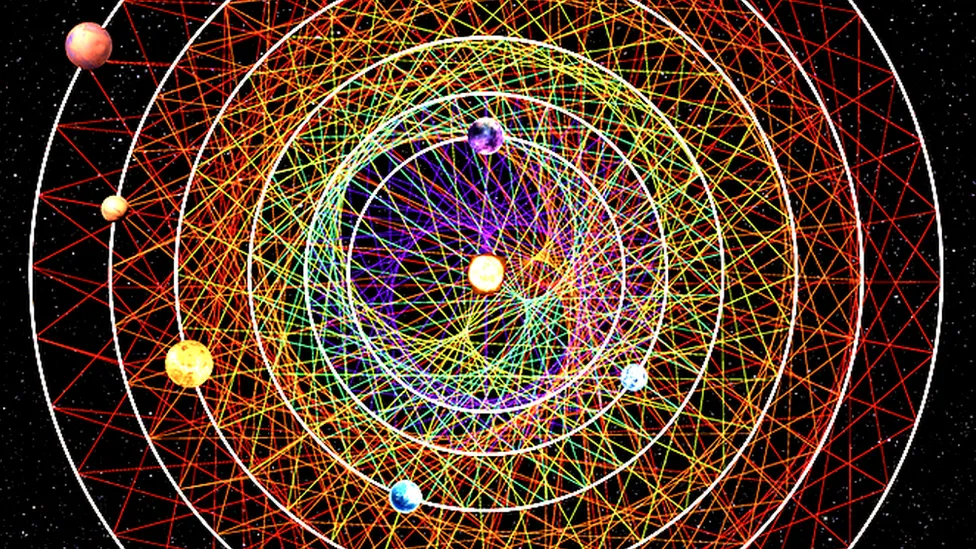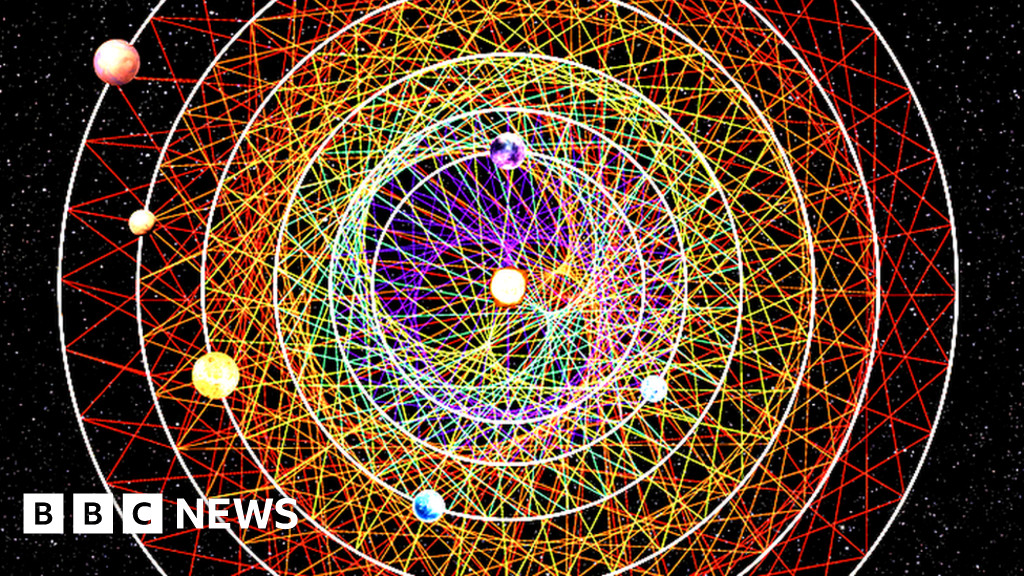IDKFA
I am Become Bilbo Baggins

Researchers have located "the perfect solar system", forged without the violent collisions that made our own a hotchpotch of different-sized planets.
The system, 100 light years away, has six planets, all about the same size. They've barely changed since its formation up to 12 billion years ago.
These undisturbed conditions make it ideal for learning how these worlds formed and whether they host life.
The creation of our own solar system was a violent process. As planets were forming some crashed into each other, disturbing orbits and leaving us with giants like Jupiter and Saturn alongside relatively small worlds like our own.
Not only are the planets similarly sized; in a far cry from the unrelated timing of the orbits of the planets in our own solar system, these rotate in synch.
In the time it takes for the innermost planet to go around the star three times, the next planet along gets around twice, and so on out to the fourth planet in the system. From there things change to a 4:3 pattern of relative orbit speeds for the last two planets.
This intricate planetary choreography is so precise that that the researchers have created a cyclical musical piece, akin to a Philip Glass-style composition, with notes and rhythms corresponding to each planet and their orbital periods. You can listen to some of it here:
<iframe width="400" height="500" frameborder="0" src=""></iframe>
All six of the new planets are what astronomers call "sub-Neptunes", which are larger than the Earth and smaller than the planet Neptune (which is four times wider than the Earth). The six newly discovered planets are between two and three times the size of Earth.
Although our own solar system does not contain any sub-Neptunes, they are thought to be the most common type of planet in the galaxy. Yet astronomers know surprisingly little about these worlds.
They do not know whether they are mostly made of rock, gas or water, or critically, whether they provide conditions for life.
Finding out these details is "one of the hottest topics in the field" according to Dr Luque, adding that the discovery of HD110067 gives his team the perfect opportunity to answer that question relatively quickly.
"It could be a matter of less than ten years," he told BBC News.
"We know the planets, we know where they are, we just need slightly more time, but it will happen."
If the team's next round of observations indicates that sub-Neptunes can also support life, it greatly increases the number of possible habitable planets and therefore increases the chances of detecting signs of life on another world sooner rather than later.

'Perfect solar system' found in search for alien life
Astronomers hope to learn how its six planets formed and whether any of them are home to life
www.bbc.co.uk






